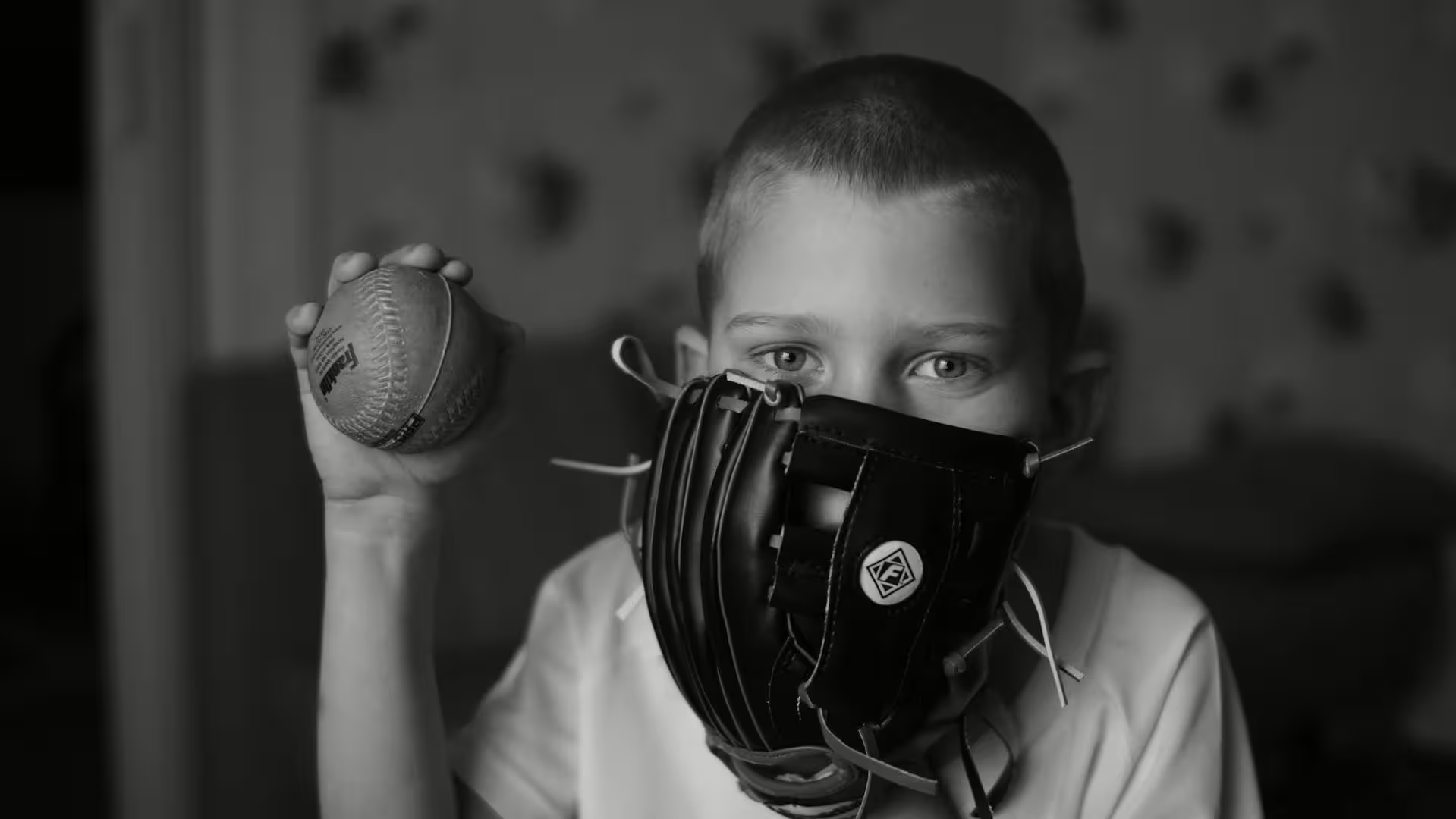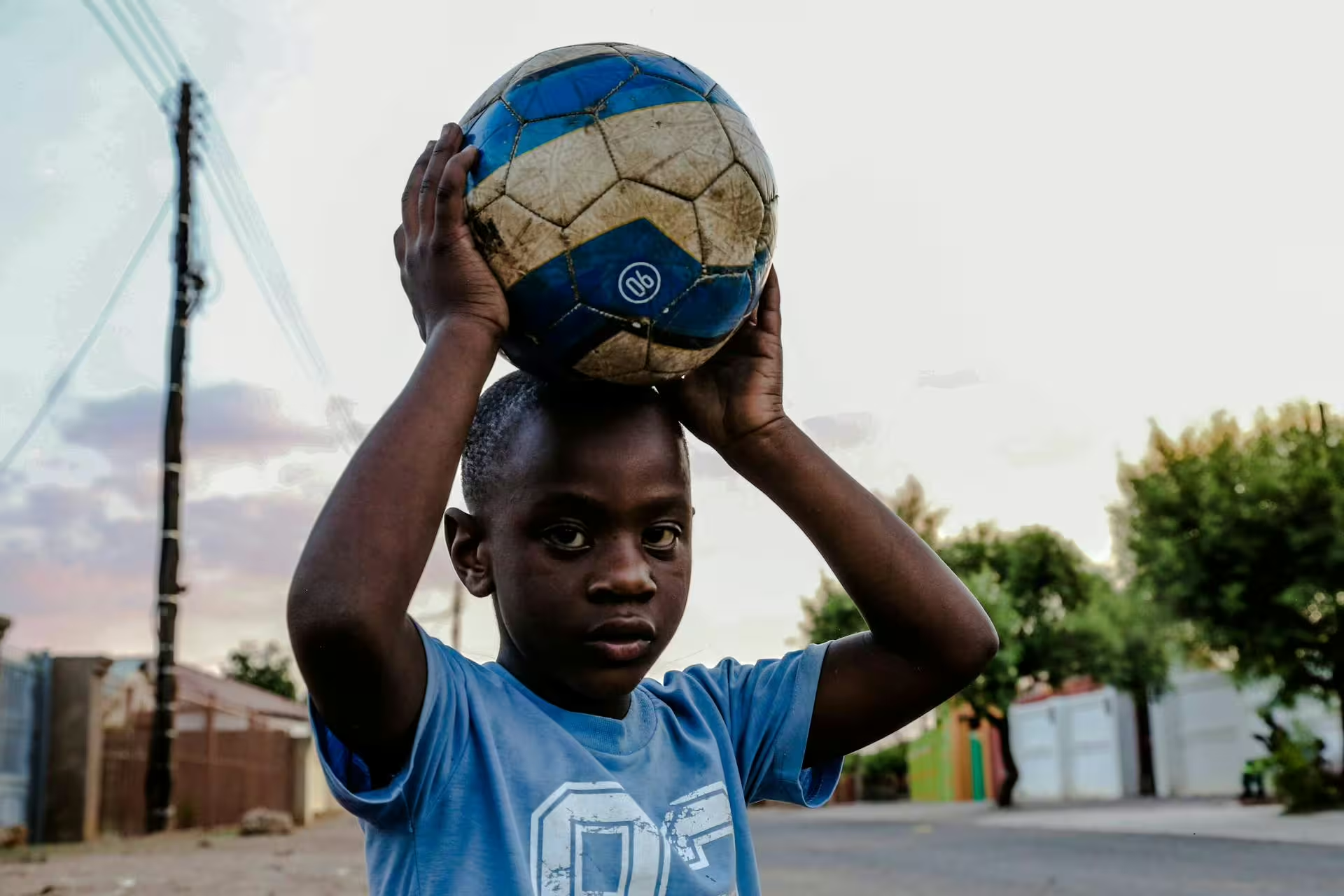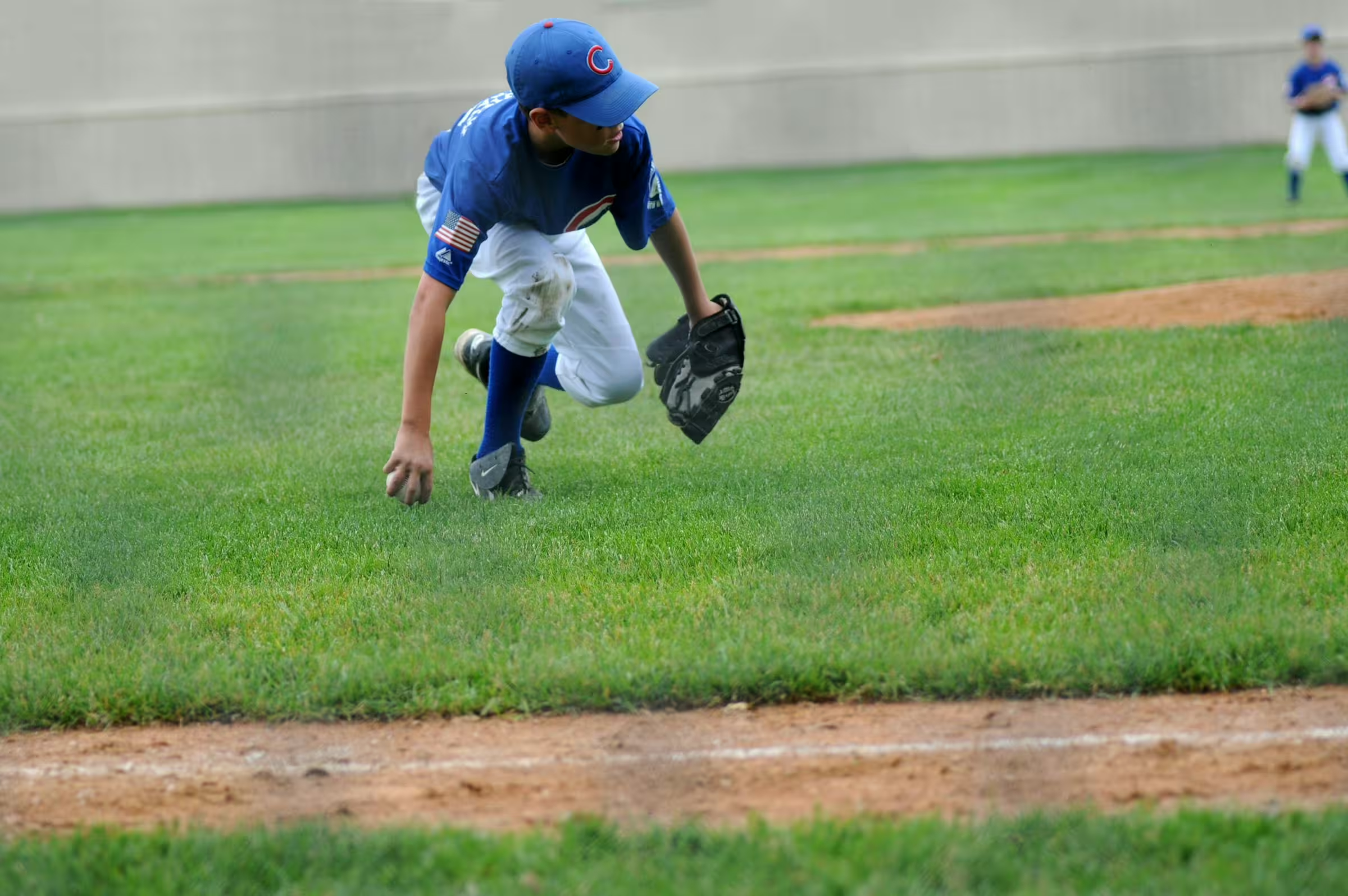Being positive is a boon on the sports field, especially since there are so many opportunities to get dragged down by missed goals, bad calls, or strike-outs. The truth is, sports might be an incredible way for kids to stay active, make friends, and learn valuable life lessons, but bummers about. That’s why one of the most important lessons that sports can teach is the power of positive thinking. Whether your child is playing soccer, basketball, hockey, tennis, swimming, or any other sport, having the right mindset can make a big difference. It can affect how well your child perform and how much they end up enjoying the game.
In this article, we’ll explore how positive thinking can benefit young athletes and why it’s so important in sports. We will also impart how practicing positivity can help your child become the best version of themself on and off the field.
What is Positive Thinking?
Positive thinking is the practice of focusing on the good in any situation. That positivity is often bolstered by the belief that you can overcome challenges with effort and determination. To be clear, positivity is not about simply pretending everything is perfect or ignoring obvious problems. Instead, it’s about maintaining a hopeful attitude. It’s about seeing setbacks as opportunities to learn and remaining motivated even when things get tough.
On the sport’s field, positive thinking helps athletes push through difficulties, improve their overall performance, and build self-confidence. It’s a mindset of, “I can do this” instead of “I’ll never be good enough,” and it’s essential for kids who are just entering into the sports world.
Why Positive Thinking is Important in Sports
Playing sports comes with its own set of challenges. Players make game-ending mistakes, feel nervous about the very act of competition, and lose matches all the time. Negative thoughts or fear or failure can be pervasive and stressful, before and after the game. This is where positive thinking becomes most important. Here are some of the key reasons why positive thinking is so important in sports:
A. Building Confidence
Confidence is as essential in sports as it is in life. When your child believes in themself, they are more likely to take risks, try new skills, and perform at their best. Positive thinking helps them to build that confidence by focusing on what they can accomplish, rather than what they can’t.
- Believing in your abilities: Positive thinking encourages kids to trust in their skills and abilities. Instead of doubting themself at every turn, they begin to believe that with practice and effort, they can improve and ultimately succeed.
- Boosting self-esteem: When your child thinks positively, they are more likely to feel good about themselves. This boost to self self-esteem will make it easier to face challenges with a positive attitude both on and off the court.
B. Handling Mistakes and Failure
One of the earliest things we try to teach our children is that everyone makes mistakes, now and then. In sports, they also learn that no one wins every game. How your child responds to setbacks is one of the most important aspects of being an athlete. Positive thinking helps them to see mistakes as learning opportunities instead of reasons to feel discouraged or disheartened.
- Learning from mistakes: Instead of getting upset when they miss a shot or lose a game, try and instill the idea that positive thinking will allow them to learn from the experience. Help your child to reflect on what happened. Perhaps they will discover that they need to practice a certain skill more and that realization might mean they approach the next game with a better strategy in mind.
- Bouncing back from failure: Failure is an inescapable part of sports, but how your child bounces back after these failures is what really matters. Positive thinkers don’t dwell on what went wrong, instead, they focus on what they can do better the next time.
C. Improving Performance
Believe it or not, the way a child thinks about a given situation can have a direct impact on how well they perform in sports. Positive thinking helps a child stay focused, motivated, and resilient, all of which are important for performing at their very best.
- Staying focused: When your kid is thinking positively, they are far less likely to get distracted by doubts, worries, or fears. This allows your young athlete to instead focus on the task at hand, whether it’s making a free throw in basketball or serving in tennis.
- Motivating yourself: Positive thoughts help keep keep kids motivated, even when they might be tired or facing a particularly tough opponent. Children who think more positively about a situation are more likely to push through challenges and keep trying. If you tell them they will succeed, it might just motivate them to do just that!
D. Enjoying the Game
At the end of the day, sports should be about having fun. Positive thinking helps kids stay relaxed and enjoy the experience. They will also be more likely to appreciate the journey, regardless of the outcome.
- Having fun: When you’re focused on the positives, your kid will also be so. They might be more apt to focus on improving their skills, spending time with their friends, or enjoying the thrill of competition, instead of what might go wrong. Positive thinking helps children to remember that sports are about more than just winning—they’re about enjoying the process and growing as an athlete.
- Reducing stress: Sports can be a stressful undertaking, especially during big games or when engaged in intense competitions. Positive thinking will help your kid reduce unnecessary stress and shift their focus away from worries and onto the joy of simply playing the game.
How to Practice Positive Thinking in Sports
Sure, you understand why positive thinking is so important, but how do you put all that positive theory into practice for your kid? Like any skill, positive thinking takes literal practice, it involves shifting your mindset time and time again, or worse, shifting that of your still-growing child. Still, with time and effort, you can train your kid’s brain to think more positively. These are some strategies to help you get started:
A. Set Realistic and Achievable Goals
One of the best ways to stay positive in sports is to set realistic, achievable goals for your kid. Having clear goals gives them something to work toward and helps them measure their progress in a meaningful way.
- Start small: Don’t go too grandiose at the start! Begin by setting small, specific goals that your child can accomplish in a short period of time. For example, if your kid plays soccer, a good goal might be to improve their passing accuracy over the following week.
- Celebrate progress: Progress is key, so you should continue to set the bar higher (but not too high) each time. When your kid reaches a goal, take a moment to celebrate their progress. Recognize their achievements, no matter how small, and then move on to the next. Doing this reinforces positive thinking and keeps your child motivated to keep improving themselves.
B. Use Positive Self-Talk
Self-talk is the inner dialogue that a person has with themselves, and the tone of that conversation can have a big impact on how they feel and perform. Positive self-talk is what happens when your child tells themselves encouraging things, like “I’ve got this” or “I’m getting better every day.” These statements are preferable to “I can’t do this” or “I’ll never be good enough.”
- Replace negative thoughts: Whenever you catch your kid thinking or saying something negative about themselves, like “I’ll never be good at this,” replace it with a positive thought. Teach them to reframe their thinking by saying something like, “I’m getting better with practice.” This simple shift in mindset can help them stay focused and remain confident.
- Use affirmations: Affirmations are positive statements that you repeat to yourself to build confidence. Good examples your kid can tell themselves before a game might be, “I’m prepared, I’m strong, and I’m ready to give my best.” Mantras and affirmations are effective tactics in all areas of life.
C. Focus on Effort, Not Just Results
It’s easy to get caught up in winning or losing, but positive thinking is often more about the effort rather than the outcome. When your child focuses more on their effort, they are more likely to stay motivated to keep improving, no matter the result of any particular game.
- Measure your progress: Instead of only focusing on whether your child won or lost, help them to pay attention to how much they have improved along the way. Ask then, did you make more accurate passes? Did you stay focused and calm under pressure? Helping them to recognize these improvements will keep them positive and motivated.
- Celebrate effort: Even if the result isn’t what your child had hoped for, try and help them celebrate the effort they put in. Positive thinkers know that giving your best effort is something to be proud of, regardless of the outcome. It’s hard for kids to grasp, but it’s not impossible if you maintain a similar mindset!
D. Visualize Success
Mental visualization is a powerful tool used by many athletes to improve their performance and stay positive. By teaching your child to picture themself succeeding in their mind, you can help them boost their confidence and mentally prep themself for the impending competition.
- Picture yourself succeeding: Before a game or practice, take a few minutes to sit with your child and close your eyes. Help them to imagine themselves performing well. Help them picture making the perfect shot, scoring a goal, or executing a flawless play. This mental practice can help them to feel more prepared and confident during gametime.
- Stay calm under pressure: Visualization can also help your child to stay calm under pressure. Sports are intensely competitive, even if your kid isn’t, but that doesn’t mean they won’t feel some degree of pressure. By imagining how they might handle tough situations, like being down by a few points in the final minutes of a game, they could end up being more prepared to stay focused and positive if and when it actually happens.
E. Surround Yourself with Positivity
You being positive is just as important to your child’s overall positivity as any other tactic mentioned above. The people that you surround yourself with can have a big impact on your mindset; the same is true for your kid. Positive teammates, parents, coaches, and friends can help them stay motivated and remind them to focus on the good.
- Supportive teammates: Playing with teammates who encourage each other and lift each other up makes a big difference to nervous kids. When everyone is focused on staying positive, it creates a fun, supportive environment where everyone can thrive. Encourage this in your daily life and. by getting involved in a positive way with team sports.
- Encouraging coaches: A positive coach can help your child develop the right mindset. Look for coaches who emphasize effort, improvement, and enjoying the game, rather than those whose focus is entirely on winning.
Overcoming Negative Thoughts
No matter how positive you try to be for your kids, there will be times when negative thoughts creep in and sour things. It’s normal for a kid to feel frustrated after a mistake or nervous before a big game. The key is learning how to manage those negative emotions so they don’t take over.
A. Acknowledge Your Feelings
It’s okay for your child to feel disappointed, frustrated, or nervous. Positive thinking isn’t about pretending that everything is hunky-dory—it’s about finding a way to move forward even when things get a little rough.
- Acknowledge the negative: Instead of trying to ignore negative feelings, help your child by acknowledging that they exist. For example, if they are feeling frustrated after a loss, it’s okay to say, “I know you’re disappointed, but I also know that you can learn from this and do better for yourself next time.”
- Refocus on the positive: After acknowledging your child’s feelings of negativity, try and refocus on the positives. Remind them of what went well, what they have learned, and how they might improve for the next game.
B. Practice Gratitude
It might not seem so in the moment, but gratitude is a powerful tool for staying positive. By focusing on the things your child should be thankful for, you can shift their mindset away from what’s going wrong and toward what’s going right.
- Keep a gratitude journal: Have your child write down three things they thankful for after each practice or game. It could be something as simple as enjoying time with your teammates or learning a new skill, but it might be enough to keep the vibes positive.
- Appreciate the experience:Breathe with your child and take a moment to appreciate the opportunity to play the sport that they love, regardless of the outcome. Recognizing the joy of playing can help them remain in a positive mindset going forward.
Cultured Athlete Says…
The power of positive thinking in kids’ sports cannot be underestimated or understated. Positive reinforcement can help young athletes build confidence, handle mistakes, improve their performance, and most importantly, learn to enjoy the game without worry. By practicing positive thinking techniques and engaging your child in an attempt to do the same, you can develop a mindset that will benefit them not just in sports, but in all areas of their lives.
So remember, the next time your child steps onto the field, court, or track, remind them first about the importance of thinking positively. If your kid learns to embrace the challenges, celebrate their efforts, and enjoy every moment of their sports journey, they will be able to achieve great things throughout their journey.
Discover more from CulturedAthlete
Subscribe to get the latest posts sent to your email.






